Seems Jenkins officially doesn't support upload of binary file yet as you can see in JENKINS-27413. You can still make use of the input step to get binary file in your workspace. We will be using a method to get this working but we will not use it inside the Jenkinsfile otherwise we will encounter errors related to In-process Script Approval. Instead, we will use Global Shared Libraries, which is considered one of Jenkins' best practices.
Please follow these steps:
1) Create a shared library
- Create a repository test-shared-library
- Create a directory named
vars in above repository. Inside vars directory, create a file copy_bin_to_wksp.groovy with the following content:
def inputGetFile(String savedfile = null) {
def filedata = null
def filename = null
// Get file using input step, will put it in build directory
// the filename will not be included in the upload data, so optionally allow it to be specified
if (savedfile == null) {
def inputFile = input message: 'Upload file', parameters: [file(name: 'library_data_upload'), string(name: 'filename', defaultValue: 'demo-backend-1.0-SNAPSHOT.jar')]
filedata = inputFile['library_data_upload']
filename = inputFile['filename']
} else {
def inputFile = input message: 'Upload file', parameters: [file(name: 'library_data_upload')]
filedata = inputFile
filename = savedfile
}
// Read contents and write to workspace
writeFile(file: filename, encoding: 'Base64', text: filedata.read().getBytes().encodeBase64().toString())
// Remove the file from the master to avoid stuff like secret leakage
filedata.delete()
return filename
}
2) Configure Jenkins for accessing Shared Library in any pipeline job
- Go to Manage Jenkins » Configure System » Global Pipeline Libraries section
- Name the library whatever you want (in my case, my-shared-library as shown below)
- Keep the default to master (this is the branch where i pushed my code)
- No need to check/uncheck the check-boxes unless you know what you're doing

3) Access shared library in your job
- In
Jenkinsfile, add the following code:
@Library('my-shared-library@master') _
node {
// Use any file name in place of *demo-backend-1.0-SNAPSHOT.jar* that i have used below
def file_in_workspace = copy_bin_to_wksp.inputGetFile('demo-backend-1.0-SNAPSHOT.jar')
sh "ls -ltR"
}

You're all set to run the job. :)

Note:
- Make sure Script Security plugin is always up-to-date
- How are Shared Libraries affected by Script Security?
- Global Shared Libraries always run outside the sandbox. These libraries are considered "trusted:" they can run any methods in Java, Groovy, Jenkins internal APIs, Jenkins plugins, or third-party libraries. This allows you to define libraries which encapsulate individually unsafe APIs in a higher-level wrapper safe for use from any Pipeline. Beware that anyone able to push commits to this SCM repository could obtain unlimited access to Jenkins.
- Folder-level Shared Libraries always run inside the sandbox. Folder-based libraries are not considered "trusted:" they run in the Groovy sandbox just like typical Pipelines.
Code Reference: James Hogarth's comment


